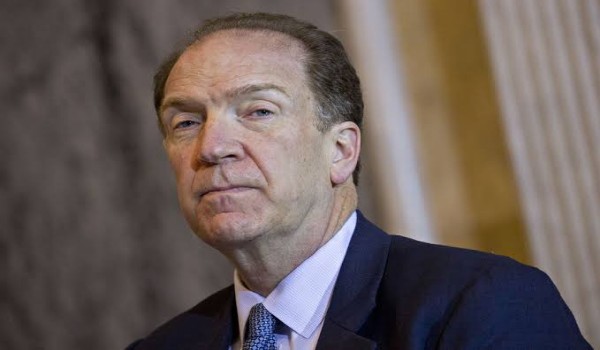Business
‘By 2030, nearly 9 in every 10 extremely poor people will be Africans’, World Bank warns

Newly elected World Bank president, David Malpass, warns that nine in every ten extremely poor people across the world will be Africans come 2030.
This was disclosed on Thursday at the ongoing spring meetings of the International Monetary Fund and World Bank Group, holding at the World Bank press conference
Malpass explained that this development will jeopardise the World Bank’s goal to end extreme poverty by that time.
“The Bank’s role is particularly important in poorer countries, where the global economic slowdown that began last year hits people the hardest.
READ ALSO: IMF says Nigeria debt to GDP ratio already risky
“On current trends, per capita income growth in Sub-Saharan Africa, as a whole, is now projected to stay below 1 percent until at least 2021, which elevates the risk of a further concentration of extreme poverty on the continent.
“This fact is extremely troubling because it jeopardizes the World Bank’s primary goal of ending extreme poverty by 2030.”
Malpass said extreme poverty is on the rise in sub-Saharan Africa despite a global drop from levels seen in the 1990s and 2000s.
“By 2030, nearly 9 in 10 extremely poor people will be Africans, and half of the world’s poor will be living in fragile and conflict-affected settings.
“This calls for urgent action—by countries themselves, and by the global community.”
In June 2018, Brookings Institution had reported that Nigeria had overtaken India as the country with the highest number of extremely poor people in the world.
Join the conversation
Support Ripples Nigeria, hold up solutions journalism
Balanced, fearless journalism driven by data comes at huge financial costs.
As a media platform, we hold leadership accountable and will not trade the right to press freedom and free speech for a piece of cake.
If you like what we do, and are ready to uphold solutions journalism, kindly donate to the Ripples Nigeria cause.
Your support would help to ensure that citizens and institutions continue to have free access to credible and reliable information for societal development.






















